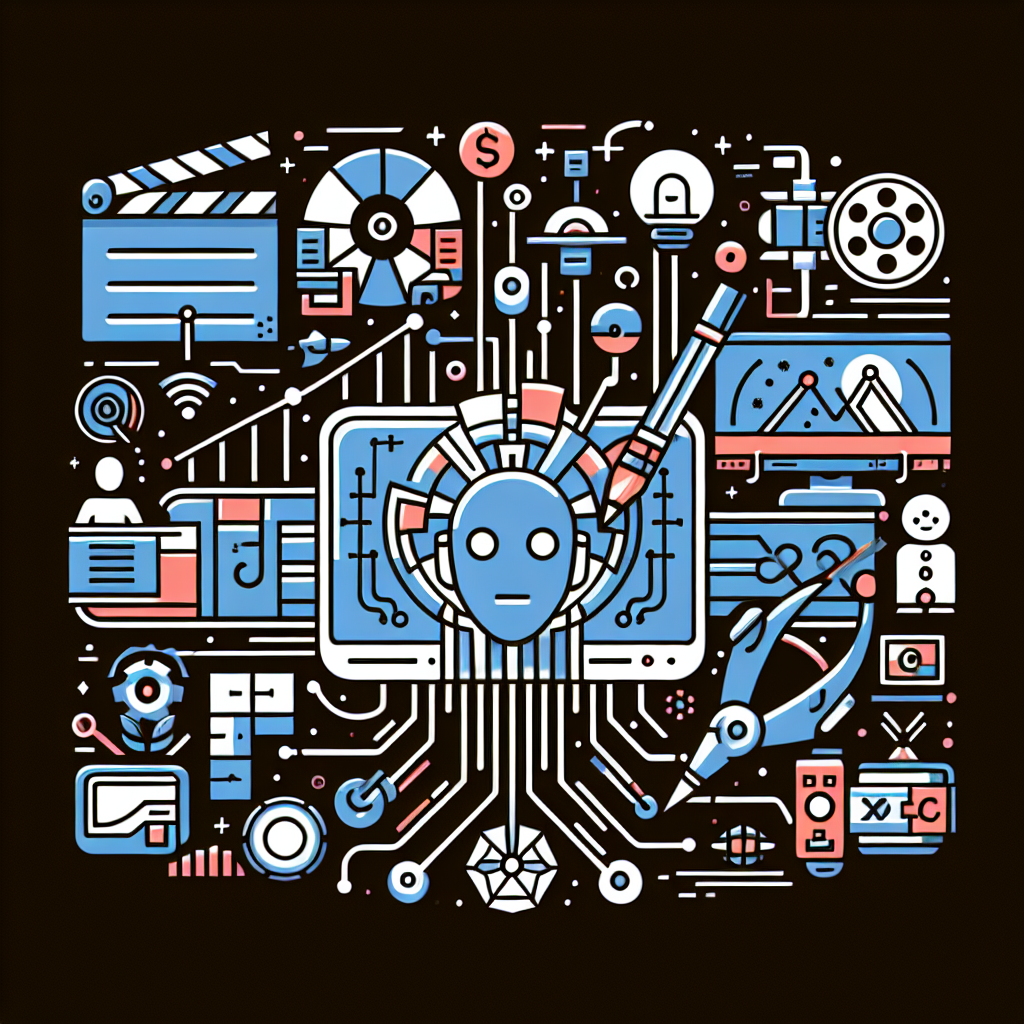The Impact of AI on Storytelling and Narrative Design in Entertainment
Artificial Intelligence (AI) has made significant advancements in recent years, and its impact is being felt across various industries, including entertainment. In the world of storytelling and narrative design, AI is revolutionizing the way stories are created, told, and consumed. From personalized experiences to dynamic narratives, AI is reshaping the entertainment landscape in exciting ways.
AI in Storytelling
AI has the ability to analyze vast amounts of data and create personalized experiences for users. In the realm of storytelling, this means that AI can tailor narratives to individual preferences and create unique experiences for each viewer or player. For example, Netflix uses AI algorithms to recommend personalized content to its users based on their viewing history and preferences. This personalized approach to storytelling can enhance engagement and create a more immersive experience for the audience.
AI can also be used to create dynamic narratives that evolve based on user interactions. In video games, AI can adapt the storyline based on player choices, creating a more immersive and interactive experience. This dynamic storytelling approach can keep players engaged and invested in the narrative, leading to a more satisfying gaming experience.
Another way AI is impacting storytelling is through the creation of virtual characters that can interact with users in real-time. These virtual characters can respond to user inputs and create a more engaging and interactive experience. For example, chatbots can be used to create virtual companions in games or interactive stories, providing users with a more personalized and immersive experience.
AI in Narrative Design
In addition to enhancing storytelling, AI is also revolutionizing narrative design in entertainment. AI can be used to generate plotlines, dialogue, and character arcs, helping writers and designers create more engaging and compelling narratives. For example, AI can analyze existing stories and use that data to generate new plotlines and characters that are likely to resonate with audiences.
AI can also be used to automate certain aspects of narrative design, freeing up time for designers to focus on more creative tasks. For example, AI can be used to generate dialogue for non-player characters in video games, saving designers time and effort in creating realistic and engaging interactions.
Furthermore, AI can be used to analyze audience feedback and sentiment to optimize storytelling and narrative design. By analyzing data on how audiences respond to different story elements, designers can make informed decisions on how to improve their narratives and create more engaging experiences for users.
FAQs
1. How is AI changing the way stories are created and consumed in entertainment?
AI is revolutionizing storytelling by creating personalized experiences, dynamic narratives, and interactive virtual characters. This personalized approach to storytelling can enhance engagement and create a more immersive experience for the audience.
2. How can AI be used to create dynamic narratives in entertainment?
AI can adapt the storyline based on user choices, creating a more immersive and interactive experience. In video games, AI can create dynamic narratives that evolve based on player interactions, leading to a more engaging gaming experience.
3. How is AI impacting narrative design in entertainment?
AI can be used to generate plotlines, dialogue, and character arcs, helping writers and designers create more engaging and compelling narratives. AI can also automate certain aspects of narrative design, freeing up time for designers to focus on more creative tasks.
4. How can AI be used to optimize storytelling and narrative design?
AI can analyze audience feedback and sentiment to optimize storytelling and narrative design. By analyzing data on how audiences respond to different story elements, designers can make informed decisions on how to improve their narratives and create more engaging experiences for users.
In conclusion, AI is transforming storytelling and narrative design in entertainment, creating more personalized, dynamic, and interactive experiences for audiences. From personalized experiences to dynamic narratives, AI is reshaping the entertainment landscape in exciting ways, and the possibilities for the future are endless.

